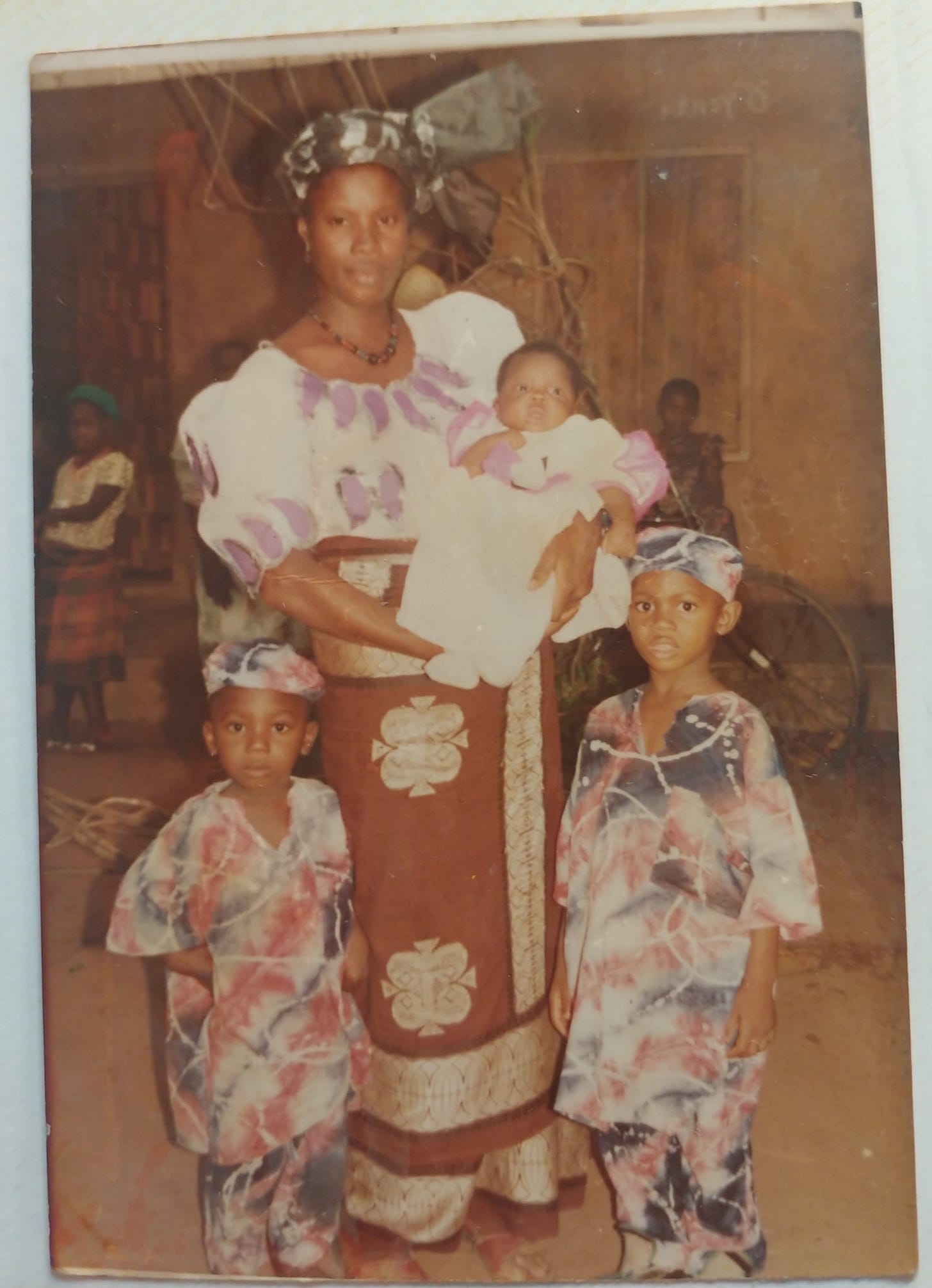This one is nonfiction. Something I wrote on IG for Mother’s Day.
I keep saying I’ll use this blog more but I have too many projects going on, honestly
I went home recently to see my parents after a few months of being away, and on the way back, I was thinking about the idea of a mother tongue. The relationship that people in the Diaspora have to the languages that they grow up with, and sometimes lose the ability to speak and try to regain as they get older. I was lucky that my parents always spoke Igbo at home and the children, at least the oldest ones, could only respond the same way.
Igbo is a language that I love and like any native language, I feel like a different version of myself when I speak it. I once told a friend that she wasn’t funny, and she responded by saying that she was actually pretty funny in her native language, but her personality is different in English. I’m still very funny in Igbo and English but she’s right that you relate differently to your native language than you do to the ones that you learn after. Some are more comfortable outside of the native language, and some feel more at home in them.
One of the fake arguments that my mom and I always have is around the different dialect that she speaks and the one that my dad and I speak. Her people are river people, and my father’s people are farmers, land people. The dialect isn’t that different but in certain words, her people use the letter “f” where my dad and I would use the letter “h”. For example, if I was to say “what happened?”, one way would be to say “kedu ihe mere?” but my mom would say “kedu ife mere?”
A few years ago, after visiting home and feeling outside of things because he could understand the language but not speak it, my little brother declared that he wanted to learn how to speak Igbo properly. My mom, who used to teach the Igbo kids in Detroit the language, offered to teach him as well. Every Sunday, they would do a lesson for about two hours.
Sometimes I would walk past as she was teaching him, and hear her teaching him in her dialect and I’d yell out that that’s not how to say certain things. That he should be learning the right way to speak. And she would shoot back that she was teaching him the proper way to speak, a refined way, and not the way of farmers — the children of antelope, which is what the name of my father’s village means.
We’ve been having this fake argument since I was a child. We did the same routine while I was at home a few days ago. And as I was thinking about the idea of a mother tongue, what became clear to me is that my relationship to the language is tied so much to how much I like to hear my mom speak it. It’s not just her bourgeois dialect, but the way that she uses it, the life that she gives the language and how she can use parables and idioms in a much more direct and targeted way than my dad does. One time when he kept cutting her off in conversation, she said the equivalent of, “at least wait until I die before you bury me”.
I’m a notorious saver of voicemails, and I save my father’s as well as my mother’s, and while my father’s way of speaking is also my own, there’s something so fun to me about the fact that my mother’s dialect is close enough that the language feels comfortable, but different still that it is foreign. It has enough distance that makes me listen to it so much more carefully and intently, whether to fake argue with her about it, or to marvel at what she does with it. She makes it feel new each time she speaks, even though I’ve been hearing her speak my whole life. I love to listen to her talk, and I frequently listen to her voicemails as a way to live in her version of the language. So much of the time when I hear Igbo, around New York City or in music and movies, it ignites this intense wish to hear her speak. And I’ll end up calling her for a few minutes just to hear her talk.
I try to not engage in many diaspora conversations, since for me it seems that people often turn being a migrant and everything that comes with it — the homeland, the adopted homeland, the language, the clothes, and the identity itself — into a vague and sentimental experience for whatever reason. For me, everything is rooted in the material reality, which means solid places and people. My relationship to a place is to the place, not the idea of the place. And my relationship to a language begins with the way real people use it, not in the structure or construct of the language itself. I can talk about how the house is built and why the design is spectacular, but that’s not a home. A home for me is, this is where I live with the people I care about.
And so when I think about my relationship to my native tongue, to my mother language, one of the first things that comes to my mind is that I want to hear my mom talk. She is at the beginning of my understanding of words, language, and the different ways that you can live through them.



